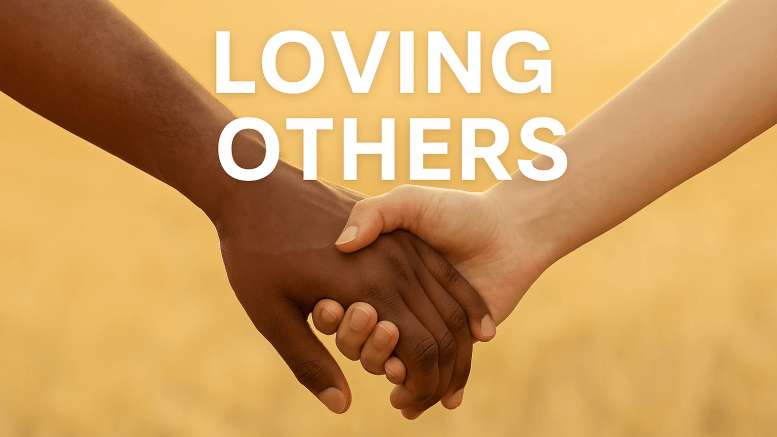Introduction: The Cultural Trap
In today’s culture, love is often misunderstood. We’re told that to love someone, we must affirm their choices, celebrate their identities, and avoid anything that might offend. But this kind of love isn’t biblical love—it’s sentimentality dressed up as virtue.
True love, according to Scripture, doesn’t compromise truth. In fact, real love *requires* truth. As Christians, we are called to mirror the love of Jesus, who was “full of grace and truth” (John 1:14). In our friendships, families, churches, and communities, we must learn how to love well without surrendering to the pressures of a truth-denying culture.
1. What Is Godly Love?
Biblical love is not passive, permissive, or afraid of confrontation. It is patient, kind, and selfless (1 Corinthians 13:4-7), but it also “does not rejoice at wrongdoing, but rejoices with the truth” (1 Corinthians 13:6).
1 John 4:8 tells us that “God is love.” This means that real love reflects God’s character. It doesn’t enable sin or embrace falsehood. It speaks life and freedom, even when it’s unpopular.
Godly love has a backbone. It is both gentle and courageous.
2. Jesus: Grace and Truth in Action
Jesus modeled how to hold love and truth together:
- The Woman Caught in Adultery (John 8:1-11): Jesus didn’t condemn her, but He also said, “Go and sin no more.”
- Modern example: A Christian friend lovingly supports a woman in an adulterous relationship. Rather than affirming her lifestyle, they show grace while gently pointing her to repentance and healing in Christ.
- The Rich Young Ruler (Mark 10:17-22): Jesus loved him, yet told him a hard truth that exposed his idol.
- Modern example: A believer mentors a successful entrepreneur who claims to follow Christ but clings to dishonest business practices. The Christian lovingly shares that one cannot serve both God and money, even if the truth costs the relationship.
- Nicodemus (John 3): Jesus compassionately explained that even a moral man must be born again.
- Modern example: A believer talks with a churchgoing friend who believes their good behavior makes them right with God. In love, they explain salvation comes through rebirth, not good works.
Jesus never affirmed sin to make people feel better. He loved them enough to tell them the truth.
3. Loving People Without Lying to Them
Our culture says love = affirmation. The Bible says love = sacrifice + truth.
To love others without compromising truth:
- Speak gently (Proverbs 15:1), but clearly
- Avoid flattery or soft-pedaling sin
- Ask questions to draw people toward reflection
- Be ready to be misunderstood (John 15:18-20)
Real Life Example: Loving Your Gay Friends with Honesty and Grace
You may have a close friend or family member who identifies as gay or transgender. You deeply love them, enjoy their friendship, and want the best for them. That love doesn’t mean you lie about God’s design for sexuality. It means you continue to care for them, pray for them, and treat them with dignity, while also refusing to celebrate or endorse what God calls sin (Romans 1:26–27; 1 Corinthians 6:9–11). You might say, “I care about you deeply, and because I do, I can’t affirm something that I believe is harmful to your soul.”
“We are not helping someone when we confirm them in a lie. We are loving them when we point them to Christ.”
4. Truth Without Arrogance
Many believers fear speaking the truth because they don’t want to sound self-righteous. That’s wise humility. But silence isn’t the answer.
In Galatians 6:1, Paul reminds us to restore others “in a spirit of gentleness.” Peter urges us to speak truth with “gentleness and respect” (1 Peter 3:15). The truth should never be a weapon. It should be a lifeline offered in love.
We don’t need to win arguments. We need to win hearts to Jesus.
5. When Relationships Get Hard
Sometimes, loving well means being rejected.
- A friend may distance themselves.
- A family member might resent your refusal to affirm sinful behavior.
- A coworker may label you intolerant.
But Jesus promised this would happen (Matthew 10:34-39). Stand firm in love. Pray. Be available. Set healthy boundaries. Don’t give up on truth or people.
“Love means caring more about someone’s eternity than their opinion of you.”
Conclusion: Love Boldly, Live Truthfully
In a world desperate for affirmation, biblical love stands out. It doesn’t shout people down, but it doesn’t shut up either.
Let us be believers who follow Jesus’ lead—speaking truth in love (Ephesians 4:15), loving our neighbors enough to point them to the Cross, and living relationships that reflect both grace and conviction.
Further Reading (Scripture References):
- – 1 Corinthians 13:4-7
- – 1 John 4:7-12
- – John 1:14
- – Ephesians 4:15
- – Galatians 6:1
- – 1 Peter 3:15
- – Romans 1:26–27
- – 1 Corinthians 6:9–11
Personal Application:
- – Ask God for boldness and gentleness in your relationships
- – Examine whether your love mirrors Christ’s character
- – Repent where you’ve compromised truth or withheld grace
- – Share Scripture with someone who needs real love
Outward Witness:
– Don’t be afraid to speak truth, even if it costs you something – Use social media to highlight loving truth-tellers – Encourage your church to disciple others in both love and doctrine
“Let all that you do be done in love.” – 1 Corinthians 16:14





